Can I just say how much fun this series is? I’m learning a lot by getting a wonderful peek inside the brains of some excellent writers.
Today we get the third installment of an occasional series on writers — how and why they write, what inspires them and how they overcome challenges like writer’s block and rejection. Previously we’ve heard from Jim Ottaviani and Lara Zielin.
Introducing Jennifer Worick. Named one of the four funniest bloggers in America by Reader’s Digest, Jennifer Worick is a New York Times-bestselling author of more than 25 books, including “The Worst-Case Scenario Survival Handbook: Dating & Sex” and the brand-spanking-new “Beyond the Family Tree” and “Simple Gifts.” She writes the popular blog “Things I Want to Punch in the Face.” For a complete list, check out http://www.amazon.com/jenniferworick. In addition, she is a blogger, social media strategist and all-around crafty gal. She lives in Seattle.
Jen’s a writing machine and was kind enough to fit in a baker’s dozen questions about how and why she writes, in between all her other projects. Maybe because we’re both Michigan grads?
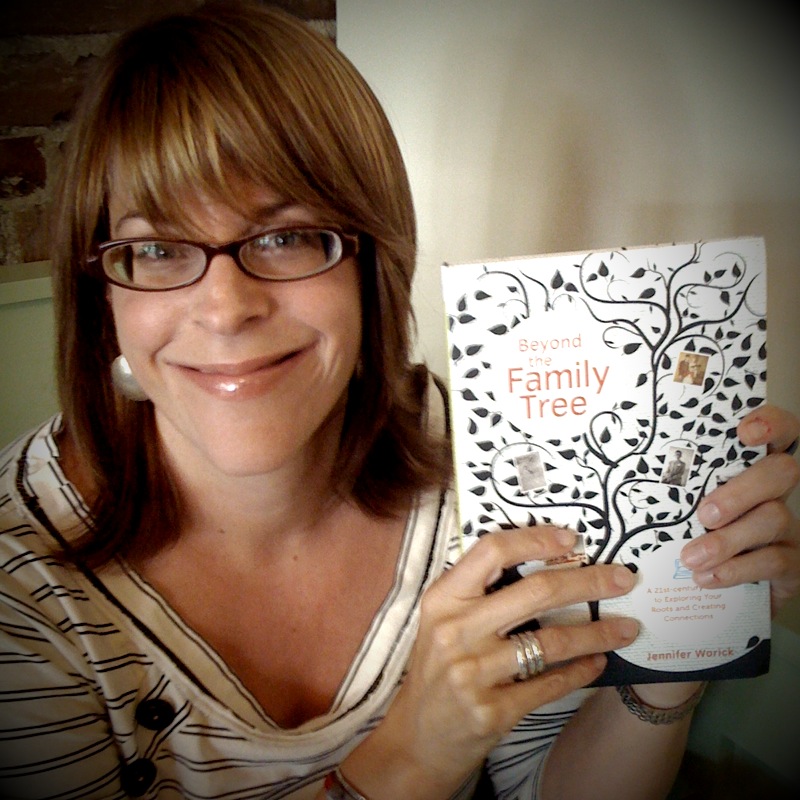
1. What have you written?
I’ve written or co-authored a couple of dozen books, including The Worst-Case Scenario Survival Handbook: Dating & Sex, which was a New York Times best-seller in 2002. My just-published titles are “Simple Gifts: 50 Little Luxuries to Craft, Sew, Cook & Knit” and “Beyond the Family Tree: A 21st– Century Guide to Exploring Your Roots and Creating Connections.”
Authored:
- A Prairie Girl’s Guide to Life: How to Sew a Sampler Quilts & 49 Other Pioneer Projects for the Modern Girl (Fall 2007)
- Backcountry Betty: Crafting With Style (Spring 2009)
- Backcountry Betty: Roughing It in Style (Fall 2007)
- Girl Group Confidential: The Ultimate Guide to Starting, Running, and Enjoying Your Own Women’s Group (2006)
- Getting Started Knitting (2006)
- Live with a Man and Love It (2005)
- Get Your Dating Game On (2003)
- Nancy Drew’s Guide to Life (2001)
- City Walks: Vancouver (2007)
Co-authored:
- The Worst-Case Scenario Survival Handbook: Dating & Sex (2001)
- The Action Heroine’s Handbook (2003)
- The Worst-Case Scenario Survival Handbook: College (2004)
- The Stuntwoman’s Workout (2005)
- Rebound Rituals (2005)
- Mr. Alexander’s 4 Steps to Love (2003)
- The Art of Belly Dancing (2002)
- Journals The Rebound Book, My Fabulous Life and My Dysfunctional Life (2003, 2001, and 1999, respectively)
2. What do you wish you’d written?
Gosh, there are so many enviable writers out there who speak to my various writerly voices. Chuck Klosterman’s insightful, spot-on wit always manages to get my goat and thrill me at the same time; his references and analogies are so perfect that I get mad that I didn’t write them myself. But then I calm down, get inspired, and get crackin’. I love Fargo Rock City, his memoir of growing up as a metalhead in North Dakota; while I wasn’t a metalhead, I could relate to the place where he grew up (being from the Midwest).
Then there’s Jeannette Walls. The Glass Castle was gripping, powerfully-written, raw, and yet elegant. I’m currently struggling with a memoir and this cut right through me. I couldn’t have written this, obviously, because it’s her story, but I hope to some day capture the same vivid description, emotionality, and story-telling of this terrific memoir.
And obviously, I wish I had written the Harry Potter series. J.K. Rowling is the bomb.
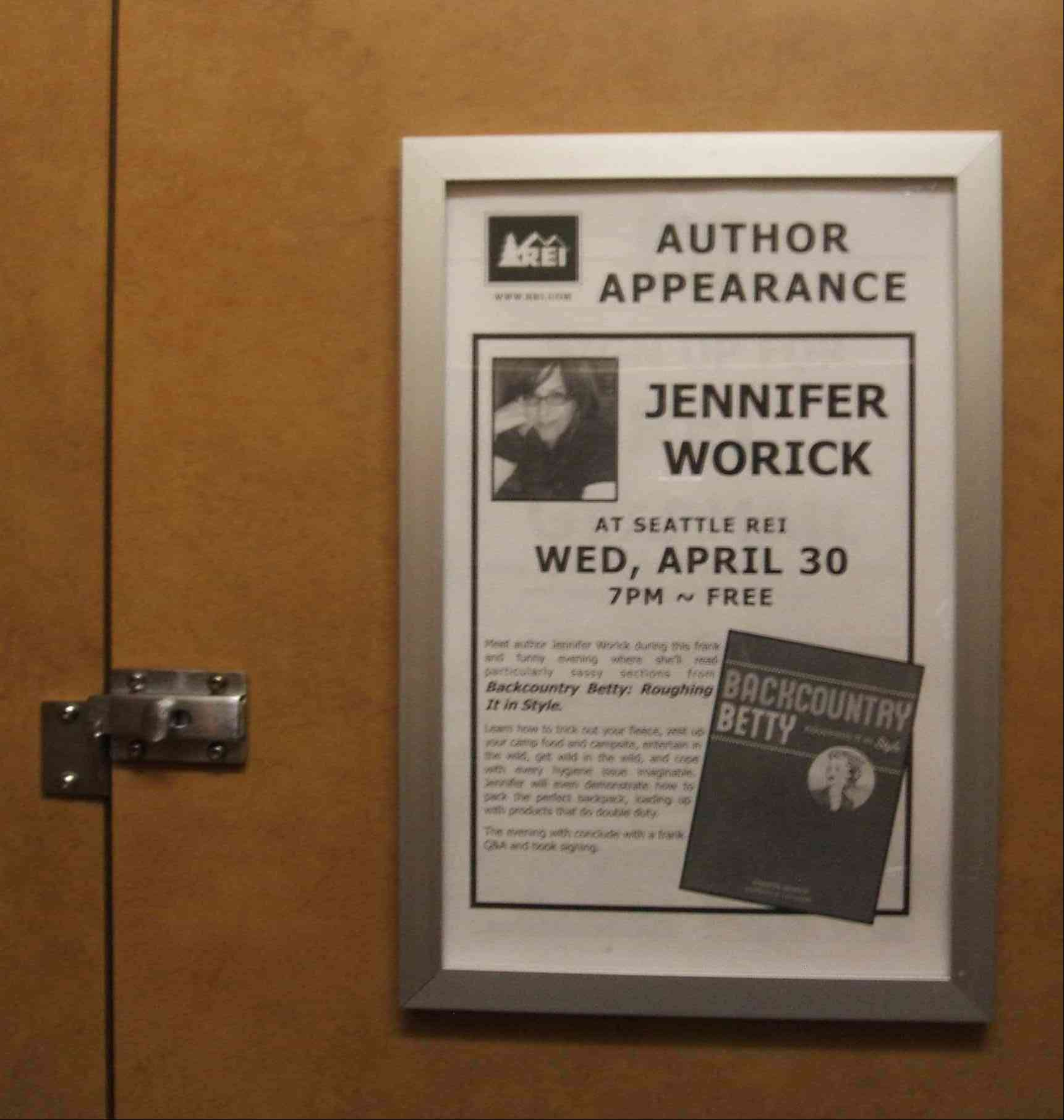
3. Who or what inspires you?
A boss once said that the best book ideas come out of your own experience, and I’ve found that to be true. If I take up knitting, I find a way to write about it. I’ve written about Nancy Drew and paid homage to Laura Ingalls Wilder, and I’m still finding ways to exploit my childhood. I’ve been working on creating a deeper connection with my family and that lead to Beyond the Family Tree.
But I get inspired by everything around me. My brilliant and loving friends, seeing the work my writerly friends produce, my crafty projects, spying a stranger on the street. I definitely get inspired by just walking down the street: my blog Things I Want to Punch in the Face is basically a collection of stuff that tickles and annoys me on a daily basis.
4. How do you answer when someone asks you, “What do you do?”
Well, when I quit my publishing job, I had an identity crisis. Saying I was a writer didn’t imply any level of success, whereas “Editorial Director” indicated that I had worked my way up the corporate ladder. But I got over that pretty quickly. I used to say that I was an author when people asked, but then got the question, “Have you been published?” I thought that hilarious. I mean, how could I say I was an author if I hadn’t been published. How did they think I was paying the rent? If someone said they were a lawyer, would you ask if they practiced law or if they were a member of the bar?
Now I just say I’m a writer. I like being identified that way and don’t feel the need to elaborate unless someone’s truly curious.
5. When do you most enjoy writing? What do you enjoy least?
I love the first draft process, particularly when I’m writing humorous or personal things. I get a kick out of turning a phrase, chuckling as something hilarious or spot-on comes out of my fingers. I guess I’d say that I like almost all kinds of writing and editing. However, when I’m daunted by a project, I sort of dread starting it, dancing around the project, putting it off because I have all sorts of other small tasks to get out of the way before diving in. But that’s just an excuse to avoid it. But once I start it, get into it, I enjoy the process. Even writing instructions for how-to books, which is probably my least-favorite thing to do, can be satisfying when I know I explained something particularly well and still managed to include a bit of flair in the process.
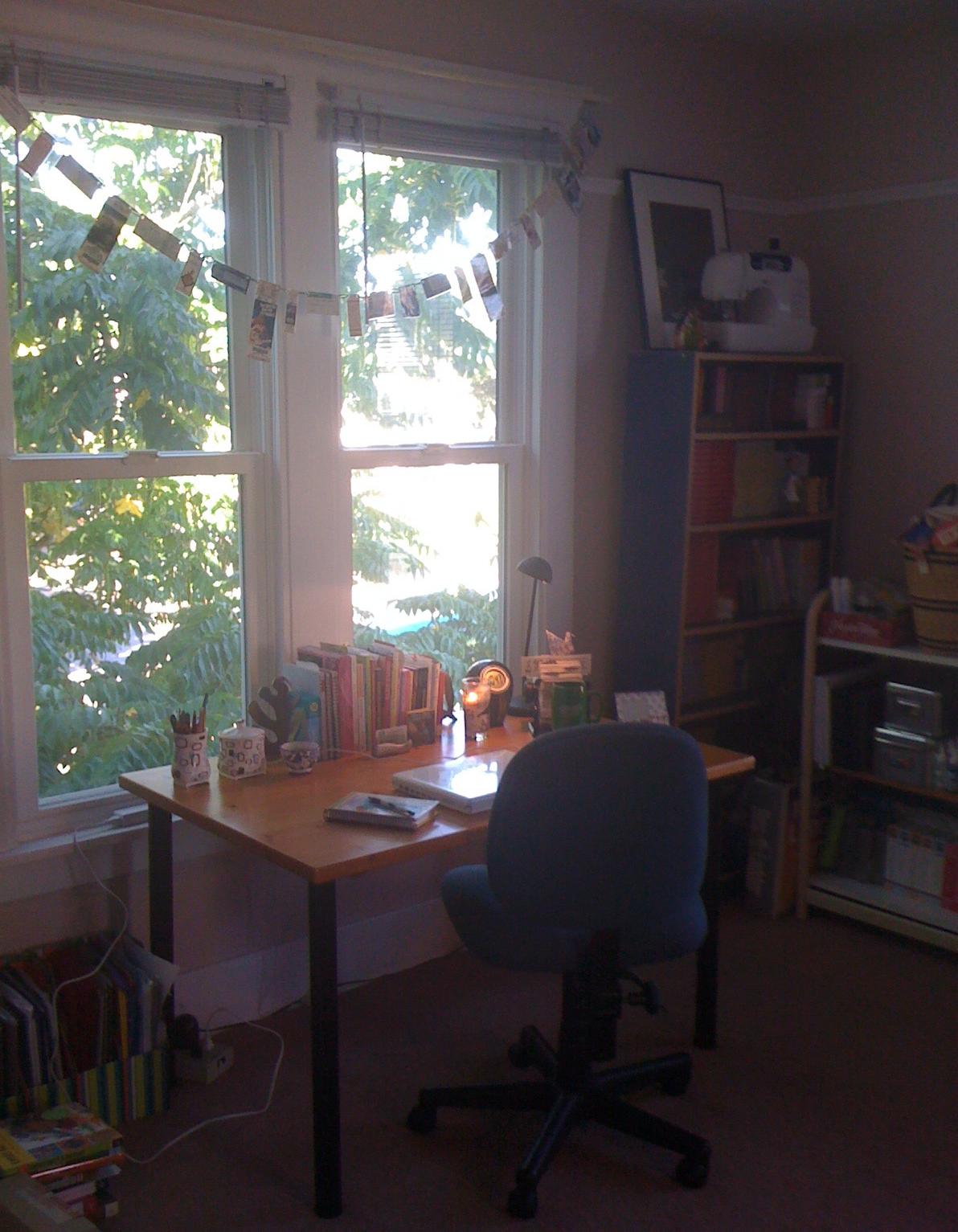
6. Describe your favorite writing environment.
I love sitting in my office on a gloomy, rainy day (not out of the question in Seattle) with my desk lamp on and maybe the radio on and a cup of tea at hand. There’s something so cozy about the whole experience that puts me in a writerly mindset.
That said, I write everywhere because ideas are everywhere: in a notebook by the beach, on vacation, in bed, in front of the TV, on a napkin at the bar. I’ve got a lot of ideas scrawled on napkins.
7. How do you budget your time for the creative part of writing versus the business side – marketing, communicating with your agent or editor, tracking finances, etc.?
This is really hard. Like REALLY hard.
It’s hard being accountable to only myself. I find that I write best in the mornings and really late at night so I try my best to keep those times free for writing. I set up certain things on my iCal and color-code them: reminders to call my agent, deadlines, the 25th of every month I do my finances and budget reports.
But I have to be somewhat fluid. I have two books to promote right now so while I’m working on a massive book proposal with a co-author, I have to also be available for interviews on either book. So I do have to show some agility and flexibility, which is sometimes hard. In writing my memoir, for instance, I really need to go to a certain place and stay there, which is challenging when I need to be talking about holiday gift projects on an early-morning radio interview.
I don’t know if that really answers the question but suffice to say that I struggle with this every day.
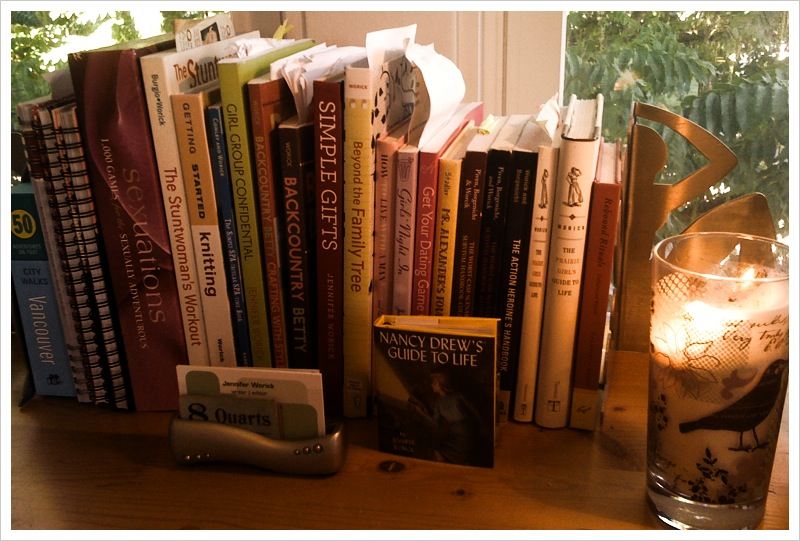
8. How do you deal with writer’s block?
I used to say that I didn’t really buy into writer’s block, what with my Midwestern work ethic and all. Butt in chair: if you sit there, it will come. Even if you write crap, you’re writing something that might lead to something hopefully good.
But I do think there are times when it’s nearly impossible to write, to get at the truth, because I’ve spent my whole life avoiding it. So for me, it’s not really a matter of the actual act of pen to paper or fingers on a keyboard that’s the problem, it’s poking at and flushing out the content, the truth. It’s getting the goods that is my stumbling block. I feel nauseous, develop headaches, argue with myself, rationalize, lie—stripping all of this away is what my writer’s block looks like. Working with a leadership coach has helped a lot, as has talking about it, exposing the story, as well as myself.
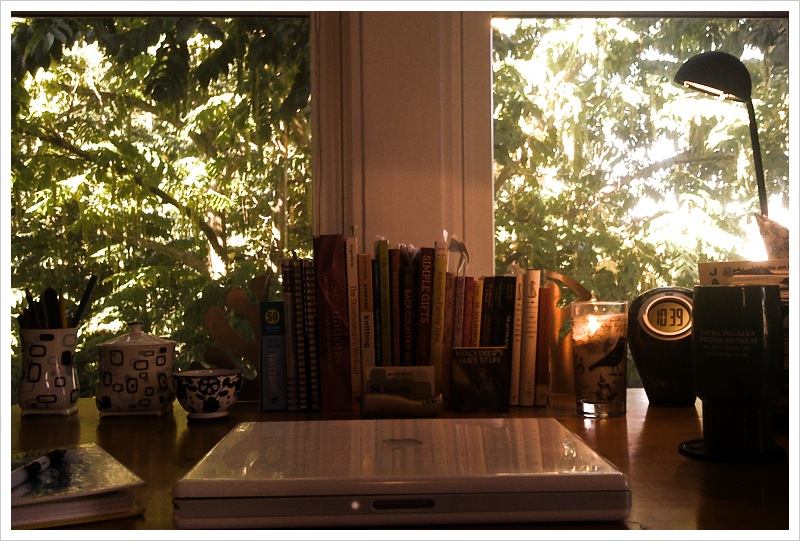
9. How do you deal with rejection?
For the most part, I’m okay when someone passes on my work. Having come from the book publishing industry, I understand the acquisitions process and I know not to take things too personally. I just know that I’m not for everyone and that perhaps I didn’t do a good enough job of getting a publisher on board with my vision. Of course, when I send out my memoir for consideration, I might be completely crushed by rejection.
10. Do you outline a structure before you start writing or do you just let the story unfold?
I generally start with as much structure as possible, break the project down into pieces and go from there. This hasn’t proven effective with my memoir, however. I’m having to through out my tried-and-true methods and it’s excruciating to be in the “not knowing” stage but it’s what’s necessary.
11. Do you know immediately when you’ve written something good?
Yep. But that’s not to say that I can’t make a mediocre first draft of something great. Some writing definitely comes much easier than others and when that happens, I’m usually really happy with the first draft. That kind of writing is what really jazzes or juices me.
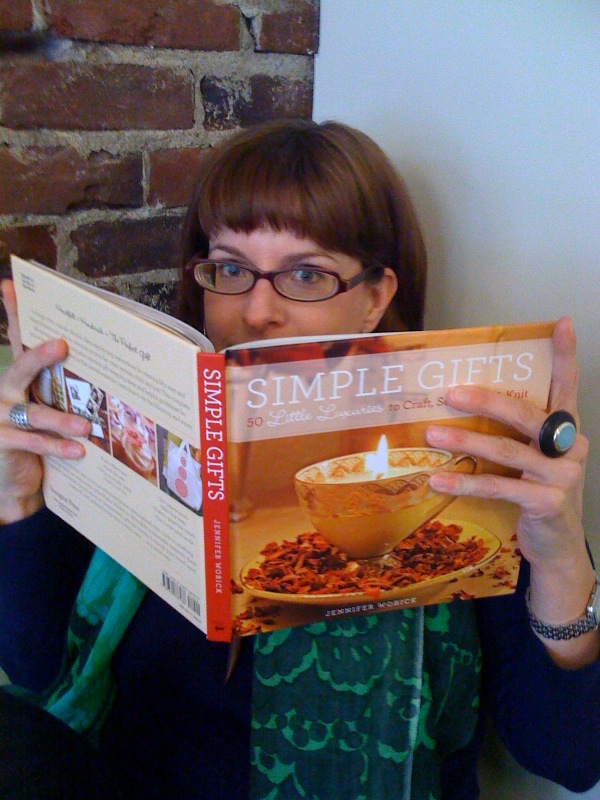
12. Did anything about your approach to writing change after you were first published?
I guess I felt validated when my first books were published, but I also felt the challenge to write something that was even more my own, even better writing. And I wrote these books when I was working full-time. Having some initial success allowed me to quit my job and start my own writing and editorial business. So I guess that was a bit of a change.
13. Why do you write?
Because I can’t not. I’m always a bit tortured by the process, but it’s what feeds me creatively, whether I’m writing a blog post or a book. I am, therefore I write.


5 Comments
Leave a reply